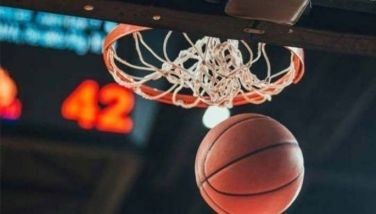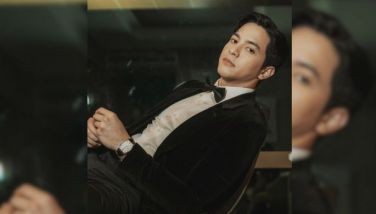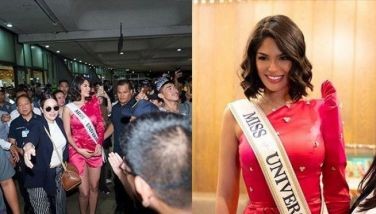Wushu on the move
January 23, 2007 | 12:00am
One of the sports that captured gold medals in the 2006 Doha Asian Games was wushu. The last medal won by the Philippines as the Games drew to a close in this martial art enabled the Philippines to match its four-gold medal output in the 2002 Busan Asian Games.
The first time that wushu attracted wide interest was during the 1991 Southeast Asian Games (SEA Games) in Manila when the national team won 10 gold medals to help catapult the Philippines to second spot in the overall championship with 91 gold medals. In the 2005 SEA Games, where the Philippines emerged overall champion for the first time, wushu won 11 gold medals.
In 1996 the Philippines hosted the Asian Wushu Championships. I was fortunate to have been associated with that successful hosting since the Philippine Sports Commission, of which I was then chairman, provided the Wushu Federation of the Philippines (WFP) ample resources to host the event. The Philippines won five medals through Lester Pimentel (swordplay), Stephanie Lorraine Lim (spearplay), Ma. Stella Unson (taijisword), Alfonso Que (spearplay), and Alfonso Que (cudgelplay). It was at this point that the Philippines served notice that it was going to be a power to reckon with in the then relatively infant sport.
A lot of the credit for the outstanding performance of wushu is the seriousness and professionalism with which the officers, members and athletes of the WFP approach their task. WFP is, incidentally, one of the very few national sports associations (NSAs) that has put in writing its vision and mission which is basically "to propagate and develop the art and sport of wushu all over the Philippines. Through its philosophy and discipline, it provides the youth and other members of society, total development to become healthy and morally upright citizens. It also helps develop elite athletes to represent and give honor to the country in international competitions."
The development of the sport in the country started in November 1987 when wushu enthusiasts headed by businessman Francis Chan formed the WFP based in Binondo, the heart of Manila’s Chinatown. Chan later invited Julian Camacho, another noted Filipino-Chinese businessman who is into air condition marketing and other allied businesses, to add further energy to the initial efforts. Camacho has been president of WFP since 1998.
Since the WFP started to compete in 1988, the Philippines has joined three world championships pocketing four gold medals along the way. The Philippine team to the Asian Wushu championships held in Hanoi, Vietnam in December 2005, a week after the Manila SEA Games, finished a strong second to China with three gold medals. The three gold medalists were Benjie Rivera, Rexel Nganhayna and Rene Catalan, who later on in Doha also snared a gold medal.
According to Camacho, the WFP will continue to promote and develop wushu at the grassroots level noting that a number of wushu elite athletes come from provinces like Benguet and the Mt. Province. The plan is to continue training wushu athletes in China before major competitions to maintain the team’s good standing in international tournaments.
According to the paper Wu Shu Kung Fu History, wushu is often the generic name given to the traditional Chinese fighting forms. In a modern context, wushu has taken on more a flashy, artistic and competitive role.
Wushu is a modern extension of ancient Chinese kung fu. In the Ming Guo era (before communism) martial arts was also referred to as Guo Shu, but the advent of communism saw a return to the term wushu. In some places, such as Taiwan, the term guo shu is still used.
Wushu saw a major change in the 20th century with the advent of communism. Gymnastics was introduced into wushu forms, paving the way for what would become modern wushu competition. Wushu is composed of two disciplines, taolu which is similar to gmnastics and involves martial art patterns and maneuvers and sanda or sanshou. The latter is a modern fighting method and sport influenced by both traditional Chinese boxing and wrestling. It resembles Muay Thai and mixed martial arts of the ultimate fighting championship (UFC) variety.
The International Wushu Federation (IWUF) placed a bid to the International Olympic Committee (IOC) to have wushu in future Olympics but was turned down. As a compromise, the IOC allowed host China to organize an international wushu event during the 2008 Beijing Olympics. The event will neither be one of the 28 official Olympics sports nor will it be demonstration event. Instead, it will be called the 2008 Beijing Olympic Games Wushu Tournament.
Calling all Theresians of Quezon City. You are invited to attend the STC QC homecoming on Saturday, Jan. 27, 2007 hosted by the silver jubilarians of HS ’82. Registration is at 2 p.m. There will be a Eucharistic Celebration at 3 p.m. followed by a photo op per class. The highlight of the evening is the program proper at 6 p.m., which will feature the performance of internationally acclaimed ballerina and STC alumna Liza Macuja-Elizalde and TV personality and STAR columnist Korina Sanchez, both of whom are silver jubilarians. Other performers are Polly Penson Aquino (HS ’72), Meca Prieto (HS ’82) and Margie Juico (HS ’67). The interesting unique book Rubies are for Remembering, written by Julibel Cabatit-Alegre (HS ’67) will be launched during the homecoming. The book contains 40 articles from members of HS ’67.
The first time that wushu attracted wide interest was during the 1991 Southeast Asian Games (SEA Games) in Manila when the national team won 10 gold medals to help catapult the Philippines to second spot in the overall championship with 91 gold medals. In the 2005 SEA Games, where the Philippines emerged overall champion for the first time, wushu won 11 gold medals.
In 1996 the Philippines hosted the Asian Wushu Championships. I was fortunate to have been associated with that successful hosting since the Philippine Sports Commission, of which I was then chairman, provided the Wushu Federation of the Philippines (WFP) ample resources to host the event. The Philippines won five medals through Lester Pimentel (swordplay), Stephanie Lorraine Lim (spearplay), Ma. Stella Unson (taijisword), Alfonso Que (spearplay), and Alfonso Que (cudgelplay). It was at this point that the Philippines served notice that it was going to be a power to reckon with in the then relatively infant sport.
A lot of the credit for the outstanding performance of wushu is the seriousness and professionalism with which the officers, members and athletes of the WFP approach their task. WFP is, incidentally, one of the very few national sports associations (NSAs) that has put in writing its vision and mission which is basically "to propagate and develop the art and sport of wushu all over the Philippines. Through its philosophy and discipline, it provides the youth and other members of society, total development to become healthy and morally upright citizens. It also helps develop elite athletes to represent and give honor to the country in international competitions."
The development of the sport in the country started in November 1987 when wushu enthusiasts headed by businessman Francis Chan formed the WFP based in Binondo, the heart of Manila’s Chinatown. Chan later invited Julian Camacho, another noted Filipino-Chinese businessman who is into air condition marketing and other allied businesses, to add further energy to the initial efforts. Camacho has been president of WFP since 1998.
Since the WFP started to compete in 1988, the Philippines has joined three world championships pocketing four gold medals along the way. The Philippine team to the Asian Wushu championships held in Hanoi, Vietnam in December 2005, a week after the Manila SEA Games, finished a strong second to China with three gold medals. The three gold medalists were Benjie Rivera, Rexel Nganhayna and Rene Catalan, who later on in Doha also snared a gold medal.
According to Camacho, the WFP will continue to promote and develop wushu at the grassroots level noting that a number of wushu elite athletes come from provinces like Benguet and the Mt. Province. The plan is to continue training wushu athletes in China before major competitions to maintain the team’s good standing in international tournaments.
According to the paper Wu Shu Kung Fu History, wushu is often the generic name given to the traditional Chinese fighting forms. In a modern context, wushu has taken on more a flashy, artistic and competitive role.
Wushu is a modern extension of ancient Chinese kung fu. In the Ming Guo era (before communism) martial arts was also referred to as Guo Shu, but the advent of communism saw a return to the term wushu. In some places, such as Taiwan, the term guo shu is still used.
Wushu saw a major change in the 20th century with the advent of communism. Gymnastics was introduced into wushu forms, paving the way for what would become modern wushu competition. Wushu is composed of two disciplines, taolu which is similar to gmnastics and involves martial art patterns and maneuvers and sanda or sanshou. The latter is a modern fighting method and sport influenced by both traditional Chinese boxing and wrestling. It resembles Muay Thai and mixed martial arts of the ultimate fighting championship (UFC) variety.
The International Wushu Federation (IWUF) placed a bid to the International Olympic Committee (IOC) to have wushu in future Olympics but was turned down. As a compromise, the IOC allowed host China to organize an international wushu event during the 2008 Beijing Olympics. The event will neither be one of the 28 official Olympics sports nor will it be demonstration event. Instead, it will be called the 2008 Beijing Olympic Games Wushu Tournament.
BrandSpace Articles
<
>
- Latest
- Trending
Trending
Latest
Trending
Latest
Recommended
































